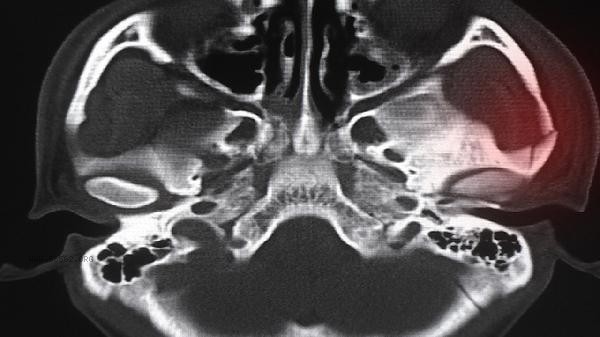Slender bones may be related to anorexia nervosa, hyperthyroidism, diabetes, chronic gastrointestinal diseases, malignant tumors and other diseases. Severe weight loss requires vigilance against nutritional absorption disorders, metabolic abnormalities, or wasting diseases. It is recommended to seek medical attention as soon as possible to investigate the cause.

1. Anorexia nervosa
Long term deliberate dieting or inducing vomiting leads to extreme weight loss, accompanied by body image disorders and fear of gaining weight. Patients may experience complications such as amenorrhea and hypotension, requiring psychological intervention combined with nutritional therapy. Common medications include fluoxetine hydrochloride capsules, olanzapine tablets, and other drugs that regulate emotions and appetite.
2. Hyperthyroidism
Excessive secretion of thyroid hormones accelerates metabolism, manifested as overeating but weight loss, accompanied by symptoms such as palpitations and hand tremors. Antithyroid drugs such as methimazole tablets and propylthiouracil tablets can control the condition, and severe cases require radioactive iodine treatment.
3. diabetes
Type 1 diabetes has glucose utilization disorder due to insulin deficiency, and the body decomposes fat and protein for energy, resulting in more than three and less than three symptoms. Lifetime insulin therapy is required, such as Asparagus insulin injection, Glargine insulin injection, etc.

4. Chronic gastrointestinal diseases
Inflammatory bowel diseases such as Crohn's disease and ulcerative colitis affect nutrient absorption, and chronic gastritis, intestinal tuberculosis, etc. can also lead to weight loss. Treatment requires repairing mucosal damage, commonly using drugs such as mesalazine enteric coated tablets and Clostridium butyricum viable tablets.
5. Malignant tumors
Advanced cancer is characterized by cachexia and progressive weight loss due to tumor depletion and chemotherapy side effects. It is necessary to treat the primary tumor in conjunction with enteral nutrition support, such as injection of immune modulators such as thymosin, to assist in improving physical fitness. Sudden weight loss exceeding 10% of standard body weight should be taken seriously, and thyroid function, gastroscopy, tumor markers, and other examinations should be improved. It is necessary to maintain a high protein and high calorie diet in daily life, eat small and frequent meals, and avoid intense exercise consumption. Eating disorders caused by psychological factors require simultaneous cognitive-behavioral therapy to establish awareness of healthy weight management. All medications must strictly follow the doctor's advice and the dosage cannot be adjusted by oneself.









Comments (0)
Leave a Comment
No comments yet
Be the first to share your thoughts!